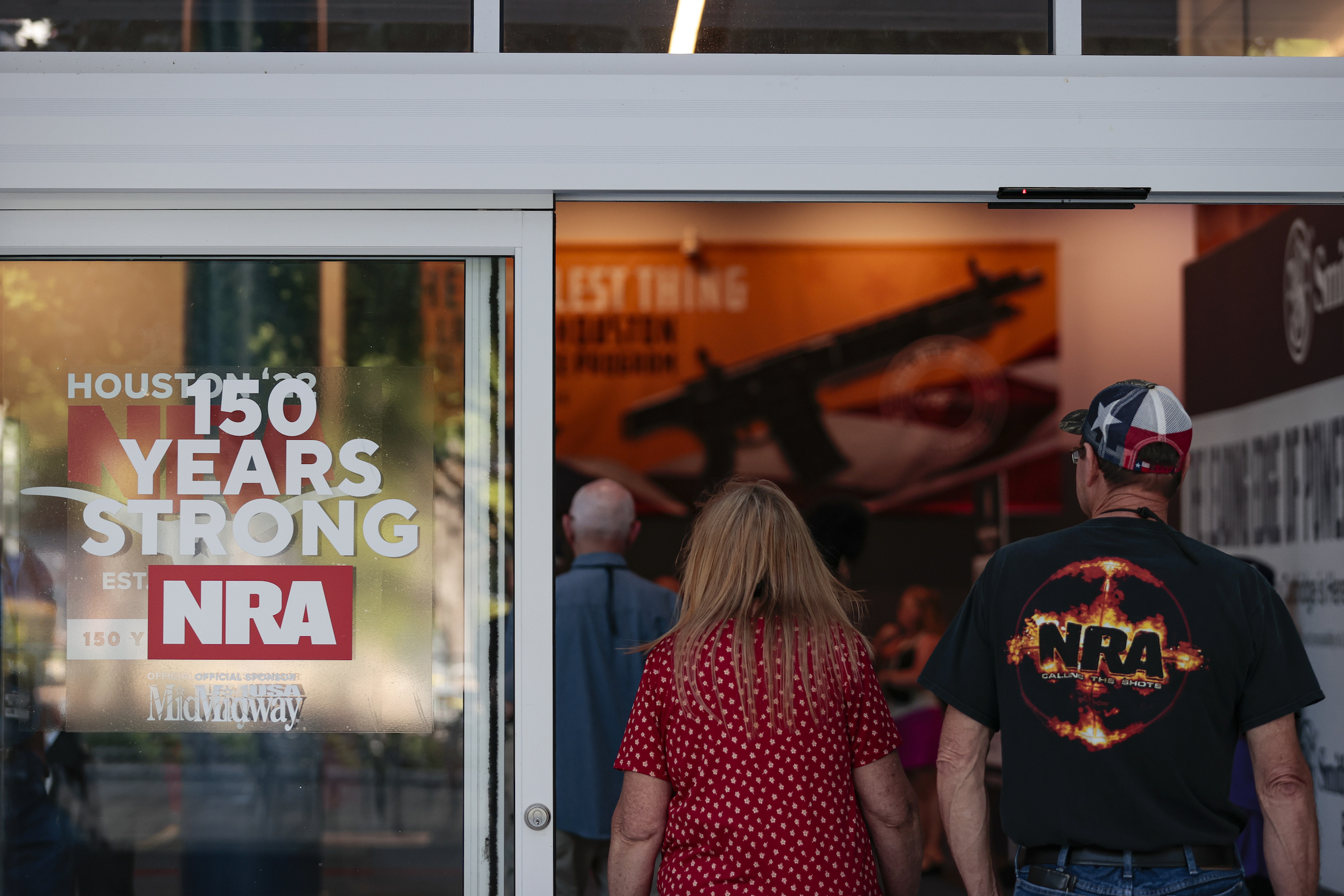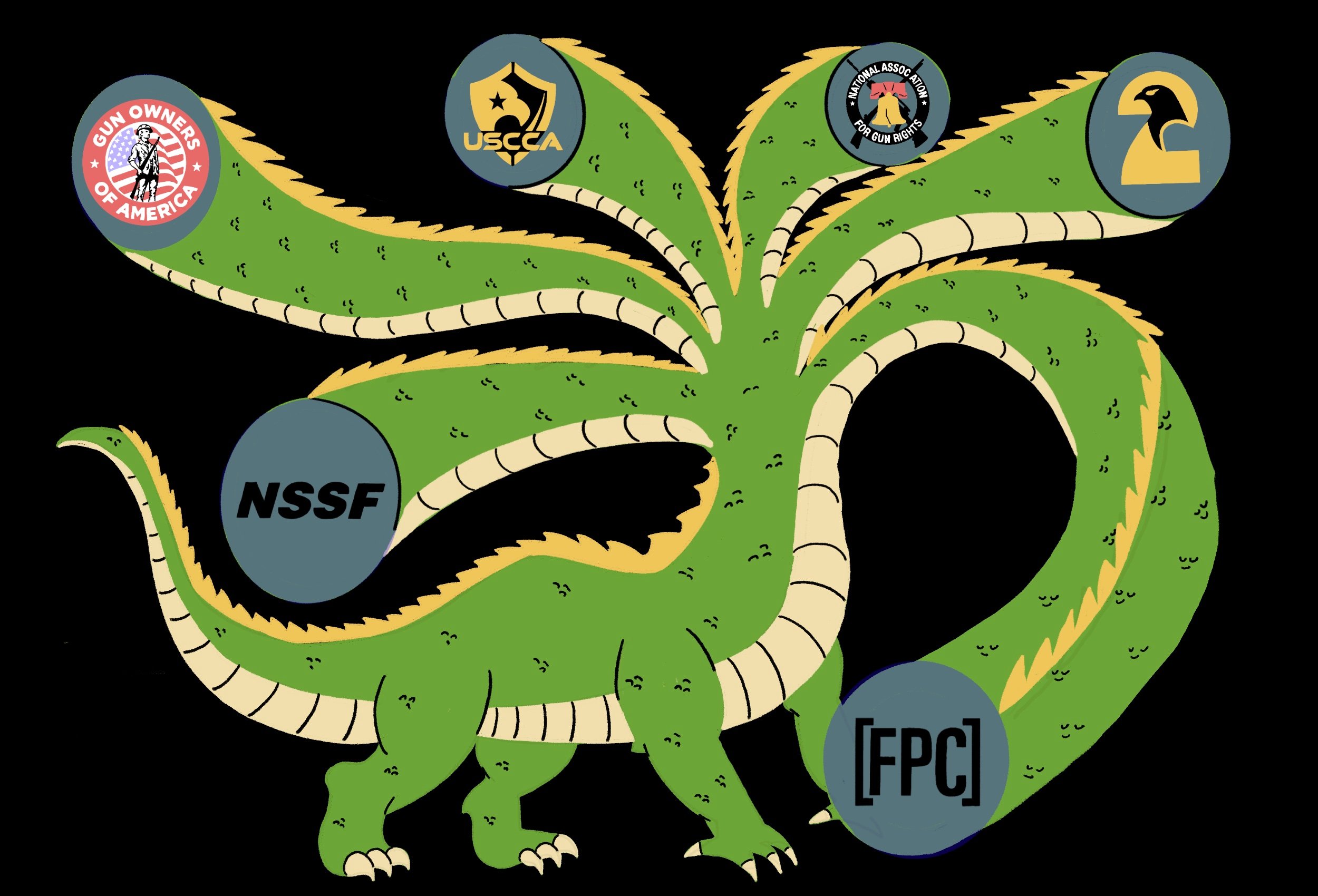Five days into the New York attorney general’s civil fraud case against the National Rifle Association, a perplexed juror sent a note to Judge Joel M. Cohen. The juror wanted to know why it was that “the NRA lawyer at times seems like she’s against her own client.”
After years of presenting a unified defense, the NRA and its CEO, Wayne LaPierre, are no longer in lockstep, which almost certainly caused the juror’s confusion. In opening remarks and through the first weeks of trial, the NRA has distanced itself from LaPierre, who announced his resignation, effective January 31, three days before the trial began. The perhaps inevitable effort to separate from LaPierre has put a strain on central arguments being made in the case.
NRA counsel Sarah Rogers has argued that her client, the gun group itself, is the case’s true victim. As Rogers said in her opening remarks, the Attorney General’s Office alleges that various rogue officials looted the NRA and is demanding that they repay the organization. Rogers was nuanced when discussing LaPierre specifically. She described him as a “valuable and visionary leader,” but “not always a meticulous corporate executive.” She also emphasized that the NRA is not Wayne LaPierre.
In recent court filings and in questioning state witnesses, the NRA’s legal team has revisited these themes and insisted that, since the AG’s office brought its suit in 2020, the organization has prioritized good governance. People who blew the whistle on financial misconduct in 2018 and remained at the NRA have testified to compliance becoming a “way of life” at the gun group. “We’ve changed,” said an NRA finance official who was promoted after being a whistleblower. “We are not the same organization.”
Among the “clear corrective actions” that the NRA points to in a recent filing is LaPierre’s resignation. In effect, NRA attorneys are arguing that under LaPierre’s leadership the organization has cured itself — and that his resignation is one of the remedies it’s taken.
Despite LaPierre’s pending departure, the AG’s office wants the jury to find that there is cause to remove him.
The office also wants jurors to find the NRA guilty of failing to responsibly steward charitable assets. If they do, Cohen could appoint a monitor to oversee the NRA and determine whether additional oversight measures are warranted. The degree to which the NRA is still abusing charitable assets, if at all, is a principal focus of the case. For the state to obtain a court-appointed monitor and other relief, it must show that the NRA’s misdeeds are ongoing or imminent.
Much of the evidence that the AG’s office has presented so far has already come to light in press accounts and in the NRA’s failed 2021 bankruptcy. Some of the evidence it has offered, however, points to problems that continued after the office brought its case in 2020. For example, the state produced a June 2021 email from the NRA’s human resources director that expressed concern over LaPierre having verbally approved a raise for a fundraising employee who had habitually violated credit card and expense reimbursement policies. “I remain stunned that we have to revisit this frequently,” the director wrote. “People have learned nothing.”
The AG’s office argues that the NRA board and top officials other than LaPierre failed in their duty of care to the organization, but largely because of absolute loyalty to the outgoing CEO. The office has presented messages in which higher-ups referred to former NRA president and current board member Carolyn Meadows — who repeatedly dismissed internal concerns about financial abuses — as LaPierre’s “Iron Lady” and “Storm Trooper.”
While pursuing a verdict against LaPierre and demonstrating his subversion of proper governance, the AG’s office must also persuade the court that his departure will have little effect on the NRA’s ability to right itself without oversight. The NRA argues that this tension undermines the office’s case. “LaPierre has relinquished his ‘power and control’ over the organization,” the NRA said in a recent court filing that quotes from the attorney general’s lawsuit, “and there is no likelihood that any of the wrongdoing alleged in the Complaint will recur. Thus, the [attorney general’s] claims that LaPierre is using his ‘power and control’ to effect ‘improper administration’ of the NRA fall completely flat.”
The parties will have a chance to refine their arguments regarding the significance of LaPierre’s departure when he takes the stand, which could happen later this week. LaPierre’s personal attorney has cautioned that his client’s Lyme disease — the stated reason for his resignation — and other illnesses may make it difficult for LaPierre to endure lengthy questioning. “He currently is unable to perform work functions, has worsening focus and concentration, and has overall cognitive changes and deterioration,” LaPierre’s doctor wrote in a note that his attorney filed with the court. “His headaches persist and are made worse by his court preparation.”


